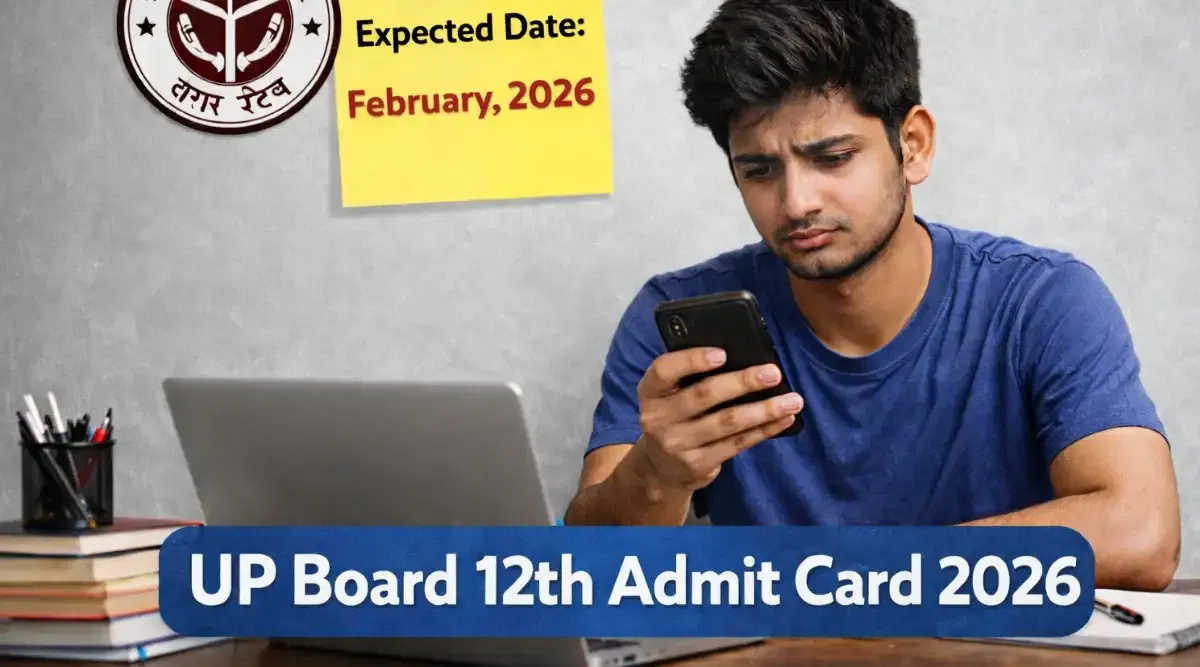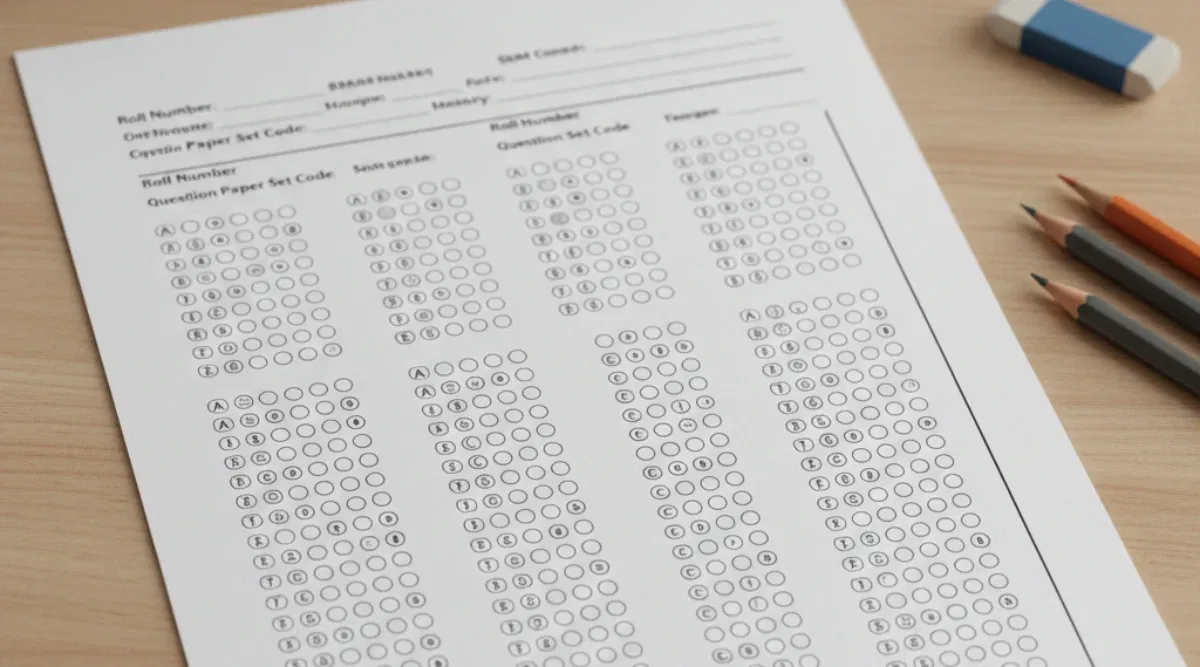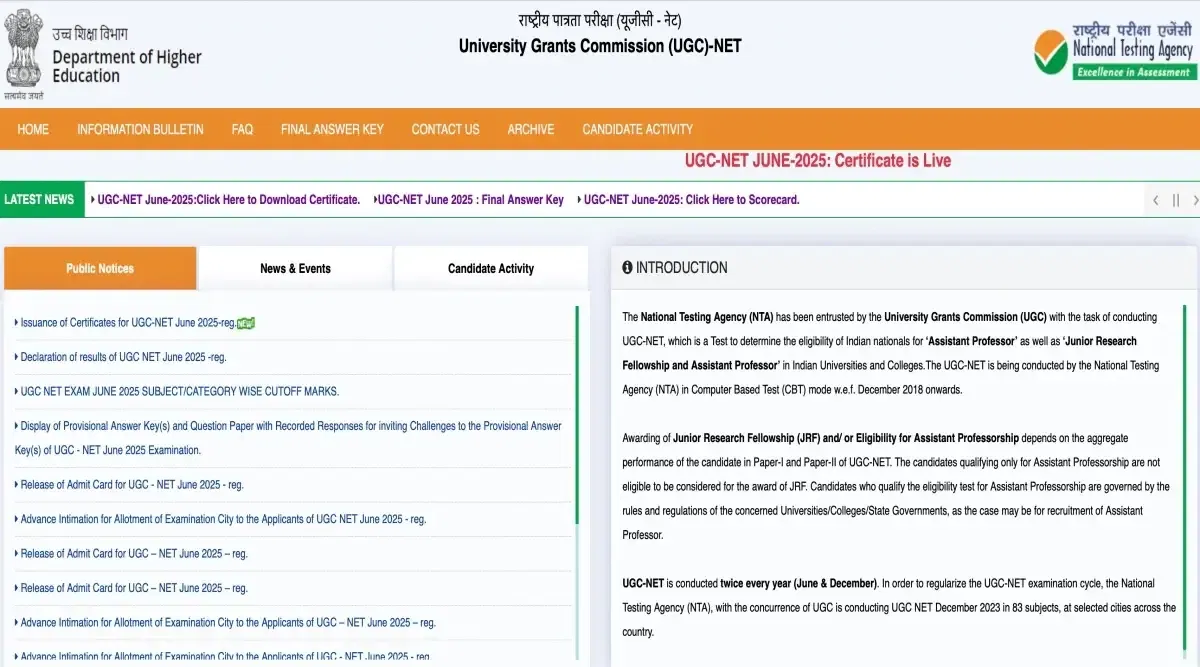Math exam tips, study strategies, and preparation resources. Learn how to improve your math skills, overcome challenges, and achieve excellent grades.
Table of Contents
Mathematics is often considered one of the most challenging subjects, yet it can be one of the most rewarding and scoring if approached the right way. With the proper strategy, consistent practice, and a clear understanding of key concepts, students can easily improve their performance and score well in their Maths exams. In this article, we will discuss effective strategies and tips on how to score good marks in Maths exam.
General Tips on How to Score Good Marks in Maths Exam?
- Clear the Fundamentals: The Maths syllabus has a strong connection across different grade levels. For instance, mastering the fundamentals of trigonometry in class 9 or 10 will make it much easier to solve advanced questions in class 11 or 12. A strong foundation in the basics not only helps in scoring well in Maths but can also set you up for achieving full marks in exams.
- Regular Practice: Mathematics is the only subject that improves with consistent practice. The more you practice, the better you become. No matter which grade you're in, aim to solve at least 10 problems regularly. Over time, you'll notice a significant improvement in your calculation skills and confidence.
- Short Notes: Create a separate notebook for important formulas and theorems to make revision quicker and more efficient.
- Standard Source: Stick to reliable and standard textbooks. For additional practice, RD Sharma is highly recommended, as it is accurate and well-written.
- Solve Sample Papers: Practice solving as many sample papers as possible. This will help you improve your speed and accuracy, making you more prepared for the actual exam.
- Refer to PYQs: Previous Year Questions are important for understanding the most frequently asked topics. After completing each chapter, review the PYQs to gain an understanding of important areas that need more focus.
How to Score Good Marks in Maths Without Studying?
Ever wondered how to score good marks in Maths without studying? You might have noticed a few students who seem to study less yet outperform those who put in hours of hard work. So, what's their secret? Well, there’s no magic behind it. The truth is, that these students have mastered the basics and understand the logic behind what they study. They can apply their knowledge more effectively, which helps them solve problems quickly and efficiently.
Now, you might be thinking, “What can I do to score good marks in Maths without studying?” Here are a few tips:
- Don’t just learn, and understand: Many students try to memorize concepts and formulas, but this often leads to short-term retention. On the other hand, when you focus on truly understanding the "how," "why," and "when" behind the concepts, you not only retain the knowledge for a longer time, but you also develop the ability to apply it effectively in different scenarios. Understanding the logic behind the problems strengthens your foundation and makes it easier to recall when needed.
- Stay Calm During the Exam: When sitting for the exam, it’s important to remain calm and composed. Don’t panic or compare yourself to others around you. Keep your focus on the paper.
- Read the Paper Carefully: Once you receive the question paper, take a few minutes to read through it thoroughly. Identify the topics you are confident about and feel 100 percent sure of solving.
- Time Management: Plan your time wisely. Focus on completing the questions that you are most confident in first, and then allocate time for the more challenging ones. Make sure you stick to the time limits for each section to avoid rushing at the end.
How To Score Good Marks in Maths Class 10?
Scoring well in Class 10 Maths requires a combination of conceptual understanding, regular practice, and smart exam strategies. If you're wondering how to score good marks in Maths Class 10, follow these key steps:
- Understand the Syllabus: Go through the Class 10 Maths syllabus and note the marks distribution for each topic. Prioritize high-weightage chapters such as Algebra, Trigonometry, and Geometry.
|
Chapters |
Marks allotted |
|
Number Systems |
6 |
|
Algebra |
20 |
|
Coordinate Geometry |
6 |
|
Geometry |
15 |
|
Trigonometry |
12 |
|
Mensuration |
10 |
|
Statistics and Probability |
11 |
- Build Conceptual Clarity:
Build concepts first before moving on to solving problems. Do not memorize formulas but understand derivations first, start solving examples given in books, and then move to advanced problems.
- Focus on NCERT Textbook: For Class 10, the NCERT textbook is your primary source of study. Most of the questions are based on this book.
How to Score Good Marks in Maths Class 12?
The following tips will not only help you score good marks in Class 12 Maths effectively but will also guide you whenever you wonder how to score good marks in Maths exam of any board.
Focus on Core Topics: Topics like Calculus, Probability, and Complex Numbers are vital in Class 12 Maths. To excel, ensure you cover these topics in depth. Start by checking the detailed syllabus, understand the weightage of each topic, and then decide which one to prioritize in your study plan.
|
Chapters |
Marks Allotted |
|
Relations and Functions |
8 |
|
Algebra |
10 |
|
Calculus |
35 |
|
Vectors and Three–Dimensional Geometry |
14 |
|
Linear Programming |
5 |
|
Probability |
8 |
Practice with Sample Papers: For Class 12, it’s important to practice past year papers and mock tests to get familiar with the paper pattern.
Understand Derivations and Proofs: While solving problems is essential, understanding the derivations and proofs of important theorems is equally important.
Don’t Skip Chapters: Avoid skipping chapters that seem complicated. A strong understanding of every chapter will ensure a better overall score.
How to Score Good Marks in Maths Exam?
There is no secret on how to score good marks in a Maths exam but consistent study and regular practice are key. If a student has prepared well and practiced enough to build confidence, they are likely to perform well. However, overconfidence can lead to mistakes. To avoid this, here are some important tips to help you perform better.
- Time Management During the Exam: When you sit for the exam, manage your time wisely. Start with easier problems to boost your confidence, and leave more difficult ones for later.
- Write Clearly and Neatly: Ensure that your solution steps are clearly written and well-organized. A neat presentation can make a good impression and help the examiner follow your work.
- Check Your Answers: If you finish early, use the remaining time to review your answers and check for any errors.
- Don’t Leave Questions Unanswered: If you’re unsure about an answer, try your best to make an educated guess. Even partial answers can score marks.























POST YOUR COMMENT